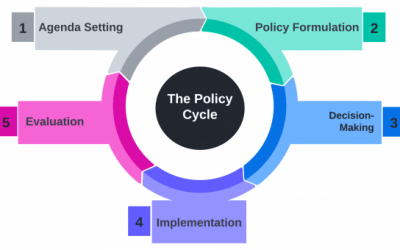Postgraduate Certificate in Data Science (Online)
Advance your career and knowledge in the Data Science field. Talk to an AdvisorApply NowPostgraduate Certificate in Data Science (Online)
Advance your career and knowledge in the Data Science field. Talk to an AdvisorApply NowSCIENCE
Postgraduate Certificate in Data Science (Online)
PGCertDataSci
Entry Requirements
Duration
Next Start Dates
2025
Semester 2:
21 July (Applications close 7 July)
Full Programme Fees*
$5,302.20 (estimate)
Disclaimer: *The programme fees are indicative and estimates only. Fees are set in advance of each calendar year and will be updated on this webpage. Fees are inclusive of 15% GST, but do not include the Student Services Fee, course books, travel and health insurance, or living costs. Fees will be confirmed upon completion of enrolment into courses.
Programme Brochure
Why is this programme right for you?
The Postgraduate Certificate in Data Science (PGCertDataSci) is a short, intensive, part-time programme that provides graduates with a foundation for mastering data science, including fundamental skills for algorithm development, data management, and predictive modelling. This qualification is ideally suited for those who have completed an undergraduate degree in either Computer Science or Statistics and wish to advance their career and knowledge in the Data Science field. The PGCertDataSci is unique in that it also provides an alternative pathway into the Master of Data Science. If you wish to develop your Data Science career and skills, this programme is for you!
Programme Structure
The PGCertDataSci aims to meet the growing global demand for data scientists by offering you a part-time but intensive data science qualification on your previous undergraduate qualification in either Statistics or Computer Science. This postgraduate certificate also provides you with an alternative pathway into the Master of Data Science.
The Postgraduate Certificate in Data Science is a 60-point programme consisting of two 30-points courses. Each course runs over a 12-week Semester, enabling you to complete this programme one course at a time in as little as two semesters.
To complete this programme, all students must take DATASCI 709 Data Management, and either STATS 709 Predictive Modelling or COMPSCI 717 Fundamentals of Algorithmics. If you have a previous qualification in Computer Science you will take STATS 709, and if you have a previous qualification in Statistics, you will take COMPSCI 717.
Course Code |
Course |
Description |
Points |
| DATASCI 709 | Data Management | Data management is the practice of collecting, preparing, organising, storing, and processing data so it can be analysed for business decisions. The course will use R and SQL to illustrate the process of data management. This will include principles and best practice in data wrangling, visualisation, modelling, querying, and updating. |
30
|
| STATS 709 | Predictive Modelling | Predictive modelling forecasts likely future outcomes based on historical and current data. Following an advanced introduction to statistics and data analysis, the course will discuss concepts for modern predictive modelling and machine learning. |
30
|
| COMPSCI 717 | Fundamentals of Algorithmics | Fundamental techniques are covered for the design of algorithms such as greedy algorithms, divide-and-conquer, and dynamic programming. Data structures are explored that help implement algorithms. Essential tools are taught for analysing algorithms, for example worst- and average-case analyses of space and time. Recommended preparation: 15 points from COMPSCI 120 or equivalent and 15 points from COMPSCI 130 or equivalent. |
30
|
Programme Structure
The PGCertDataSci aims to meet the growing global demand for data scientists by offering you a part-time but intensive data science qualification on your previous undergraduate qualification in either Statistics or Computer Science. This postgraduate certificate also provides you with an alternative pathway into the Master of Data Science.
The Postgraduate Certificate in Data Science is a 60-point programme consisting of two 30-points courses. Each course runs over a 12-week Semester, enabling you to complete this programme one course at a time in as little as two semesters.
To complete this programme, all students must take DATASCI 709 Data Management, and either STATS 709 Predictive Modelling or COMPSCI 717 Fundamentals of Algorithmics. If you have a previous qualification in Computer Science you will take STATS 709, and if you have a previous qualification in Statistics, you will take COMPSCI 717.
DATASCI 709 - Data Management - 30 Points
Data management is the practice of collecting, preparing, organising, storing, and processing data so it can be analysed for business decisions. The course will use R and SQL to illustrate the process of data management. This will include principles and best practice in data wrangling, visualisation, modelling, querying, and updating.
STATS 709 - Predictive Modelling - 30 Points
Predictive modelling forecasts likely future outcomes based on historical and current data. Following an advanced introduction to statistics and data analysis, the course will discuss concepts for modern predictive modelling and machine learning.
COMPSCI 717 - Fundamentals of Algorithmics - 30 Points
Fundamental techniques are covered for the design of algorithms such as greedy algorithms, divide-and-conquer, and dynamic programming. Data structures are explored that help implement algorithms. Essential tools are taught for analysing algorithms, for example worst- and average-case analyses of space and time. Recommended preparation: 15 points from COMPSCI 120 or equivalent and 15 points from COMPSCI 130 or equivalent.
Course Benefits
As a graduate of the Postgraduate Certificate in Data Science, you will be able to:
1. Apply principles and best practice from data governance, management, predictive modelling, machine learning, and statistical analysis to relevant domains
2. Explore data structures to design efficient solutions to computational problems in data science
3. Critically analyse data and data models for their appropriateness and limitations to forecast future outcomes
4. Take into account ethical considerations and evaluate the impact of their findings on culture, economy, environment, and society
Postgraduate Certificate in Data Science – Enquire Now
Experimenting with programming in the browser
How to Learn the Basics of Programming? Getting started with programming can be a daunting prospect. Reading code can seem like you're reading a foreign language. Also, there are a huge amount of resources available online - but where do you start? Today we'll be...
Educational Leadership During Challenging Times
The pandemic has pushed us to make change, to transform our practice, to relate to each other in new ways and to think differently about what it means to learn and lead and how learning and leadership happens. As leaders under these conditions we can sometimes...
Perspectives in Public Policy – The Policy Cycle
What is Public Policy? According to Wilson (2009), public policy is what governments decide to do, or not do, and their explanations for the outcomes of those decisions in the real world. A recent example of this is the government's 2019 cash injection into the mental...




